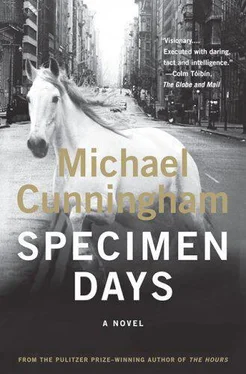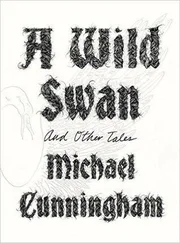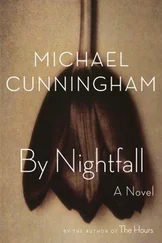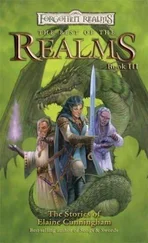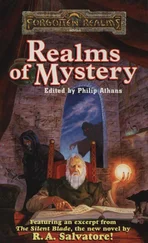Michael Cunningham - Specimen Days
Здесь есть возможность читать онлайн «Michael Cunningham - Specimen Days» — ознакомительный отрывок электронной книги совершенно бесплатно, а после прочтения отрывка купить полную версию. В некоторых случаях можно слушать аудио, скачать через торрент в формате fb2 и присутствует краткое содержание. Город: New York, Год выпуска: 2005, ISBN: 2005, Издательство: Farrar, Straus and Giroux, Жанр: Современная проза, на английском языке. Описание произведения, (предисловие) а так же отзывы посетителей доступны на портале библиотеки ЛибКат.
- Название:Specimen Days
- Автор:
- Издательство:Farrar, Straus and Giroux
- Жанр:
- Год:2005
- Город:New York
- ISBN:0-374-70515-1
- Рейтинг книги:4 / 5. Голосов: 1
-
Избранное:Добавить в избранное
- Отзывы:
-
Ваша оценка:
- 80
- 1
- 2
- 3
- 4
- 5
Specimen Days: краткое содержание, описание и аннотация
Предлагаем к чтению аннотацию, описание, краткое содержание или предисловие (зависит от того, что написал сам автор книги «Specimen Days»). Если вы не нашли необходимую информацию о книге — напишите в комментариях, мы постараемся отыскать её.
Specimen Days — читать онлайн ознакомительный отрывок
Ниже представлен текст книги, разбитый по страницам. Система сохранения места последней прочитанной страницы, позволяет с удобством читать онлайн бесплатно книгу «Specimen Days», без необходимости каждый раз заново искать на чём Вы остановились. Поставьте закладку, и сможете в любой момент перейти на страницу, на которой закончили чтение.
Интервал:
Закладка:
Lucas undressed and got into the bed on Simon’s side. Simon’s pillow still smelled of Simon. Lucas inhaled. Here were Simon’s humors: oil and sweat. Here was his undercurrent of tallow and his other smell, which Lucas could think of only as Simon, a smell that resembled bread but was not that, was merely the smell of Simon’s body as it moved and breathed.
And there, visible through the window, were the lighted curtains of Emily Hoefstaedler across the air shaft. Emily worked with Catherine at Mannahatta, sewing sleeves onto bodices. She ate Turkish delight privately, from a silver tin she kept hidden in her room. She would be eating it now, Lucas thought, over there, behind the curtain. What would heaven be for Emily, who loved candy and had hungered for Simon? Would there be a Simon she could eat?
He lit the lamp, took the book from its place under the mattress. He began reading.
A child said What is the grass? fetching it to me with full hands;
How could I answer the child? I do not know what it is any more than he.
I guess it must be the flag of my disposition, out of hopeful green stuff woven.
Or I guess it is the handkerchief of the Lord,
A scented gift and remembrancer designedly dropt,
Bearing the owners name someway in the corners, that we may see and remark, and say Whose ?
He read it again and again. Then he closed the book and held it up, looking at Walt’s likeness, the small bearded face that gazed out from the paper. Although it was wicked to think so, he could not help believing that God must resemble Walt, with his shrewd, benevolent eyes and the edible-looking spill of his beard. He had seen Walt twice, walking in the streets, and he thought he had seen St. Brigid once, cloaked and melancholy, slipping into a doorway, wearing a hat to conceal her circle of light. He liked knowing they were in the world but preferred them as they resided here, on the paper and on the wall.
Lucas put the book back under the mattress. He extinguished the lamp. Across the air shaft, he could see the light of Emily’s curtains. He buried his face in Simon’s pillow. Simon was with them still. His pillow still smelled of him.
Lucas whispered into the pillow, “You should go away now. I really think it’s time.”
In the morning he made tea for himself and his father and put out some bread. His father sat at table with his breathing machine, a tube and a bellows on a metal pole, with three square, delicate feet. His mother hadn’t risen yet.
When Lucas had eaten his bread and drunk his tea, he said, “Goodbye, Father.”
His father looked at him, startled. He had been turned to leather by his years in the tannery. His burnished skin, fine-grained, fit perfectly on his big-jawed skull. His dark eyes were set like jewels. Simon’s beauty, his large and defiant features, came mostly from their father. No one knew how Lucas had come to look as he did.
“G’bye, then,” his father said. He raised the tube to his lips, drew in a mouthful of air. The little bellows rose and fell. Now that he was leather, with jewels for eyes, the machine did his breathing for him.
“Will you see to Mother?” Lucas asked. “Aye,” his father said.
Lucas put his small hand on his father’s brown one. He loved himself for loving his father. It was the best he could do.
“I’m off to the works,” he said.
“Aye,” his father answered, and took another breath from the tube. The machine was a gift from the tannery. They had given him the machine, and some money. There had been no money for Simon, because dying was his own fault.
Lucas kissed his father’s forehead. His father’s mind was leather now, too, but his goodness remained. All he had lost were his complications. He could still do what he needed to do. He could still love Lucas’s mother and tend to her. Lucas hoped he could still do that.
He said, “I’ll see you tonight, then.”
“Aye,” his father answered.
On his way to the works, Lucas stopped at the school. He didn’t enter. He went around to the side and looked through the window. He could see Mr. Mulchady frowning at his desk, the little flames from the lamps dancing on his spectacles. He could see the others hunched over their lessons. School would go on without him. Here as always were the desks and slates. Here were the two maps on the wall, the world and the stars. Lucas had only lately understood (he could be slow in some things) that the two were different. He’d believed, and had not thought to ask otherwise, that the stars were a version of the world, that they mirrored its countries and oceans. Why else would they be mounted side by side? When he was younger he had found New York on the map of the world and found its counterpart on the map of the stars, the Pleiades.
It was Mr. Mulchady who’d given Walt’s book to Lucas, on loan. Mr. Mulchady said Lucas had the soul of a poet, which was kind of him but wrong. Lucas had no soul at all. He was a stranger, a citizen of no place, come from County Kerry but planted in New York, where he grew like a blighted potato; where he didn’t sing or shout as the other Irish did; where he harbored not soul but an emptiness sparked here and there with painful shocks of love, for the map of the stars and the answering flames on Mr. Mulchady’s spectacles; for Catherine and his mother and a horse on wheels. He did not mourn Simon; he had no convictions about heaven, no thirst for Christ’s revivifying blood. What he wanted was the raucousness of the city, where people hauled their loads of corn or coal, where they danced to fiddles, wept or laughed, sold and begged and bartered, not always happily but always with a vigor that was what he meant, privately, by soul. It was a defiant, uncrushable aliveness. He hoped the book could instill that in him.
Now, abruptly, he was finished with school. He would have liked to say goodbye to Mr. Mulchady, but if he did Mr. Mulchady would ask him to return the book, and Lucas couldn’t do that, not yet. He was still an empty suit of clothes. He hoped Mr. Mulchady wouldn’t mind waiting.
He said goodbye, silently, to the classroom, to the maps and Mr. Mulchady.
The works was like a city unto itself. It was red brick walls and red brick towers, a gate big enough for six horses walking abreast. Lucas entered through the gate, among a crowd of boys and men. Some went quietly. Some spoke to one another, laughed. One said, “Fat, you never seen one as fat as her,” and another said, “I like ’em fat.” The boys and the younger men were pale. The older men had darkened.
Lucas, uncertain, walked with the others into a cobbled courtyard where stacks of brown-black iron, dusky as great bars of chocolate, stood against the red brick walls. He went with the others to a doorway at the courtyard’s opposite end, an arched entrance with flickering dark inside.
He stopped there. The others moved around him. A man in a blue cap jostled him, cursed, walked on. The man would be eaten as Simon had been. What the machine did not care for would be put in a box and taken across the river.
Lucas couldn’t tell whether he was meant to go in or to wait here. He thought it might be foolish to wait. The others were so certain, so loud but steady, like unruly soldiers on parade. He hated drawing attention to himself. But he thought, too, that if he went on he might be drawn forward into some error, obscure but irredeemable. He stood in an agony of doubt with the others flowing around him.
Soon Lucas was alone save for a few stragglers who hurried by him without seeming to see him at all. Finally it seemed an unspeakable mercy a man came from the building into the courtyard and said, “Are you Lucas?”
Читать дальшеИнтервал:
Закладка:
Похожие книги на «Specimen Days»
Представляем Вашему вниманию похожие книги на «Specimen Days» списком для выбора. Мы отобрали схожую по названию и смыслу литературу в надежде предоставить читателям больше вариантов отыскать новые, интересные, ещё непрочитанные произведения.
Обсуждение, отзывы о книге «Specimen Days» и просто собственные мнения читателей. Оставьте ваши комментарии, напишите, что Вы думаете о произведении, его смысле или главных героях. Укажите что конкретно понравилось, а что нет, и почему Вы так считаете.
